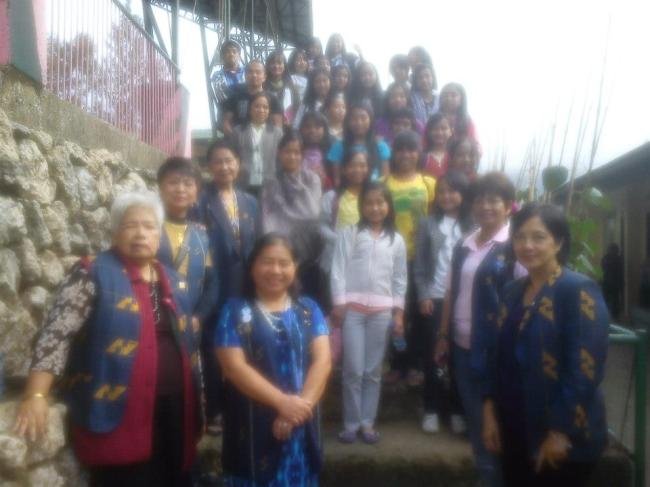women do twice as much
Posted on: February 11, 2014
Women do twice as much
(published by the Cordillera Today – Feb 2, 2014)
Whatever women do they must do twice as well as men to be thought half as good. Luckily, this is not difficult. ~Charlotte Whitton
In the mid-1980s when we were doing community development work in the Cordillera villages “ili” on the equal rights of women and girls. The discussion included the Kalinga women doing all the house chores as well as planting, harvesting, pounding and cooking rice. While the men do the hunting and sit around. For those from Mountain Province, they said the women and men share the responsibility in agriculture and in family life. All this ongoing discussions were feedback on the women’s rights movement.
This March 10 to 21 the United Nations will hold the 58th Session of the Committee on the Status of Women (UN CSW) in UN New York with the theme “Challenges and Achievements on the Implementation of the Millennium Development Goals for Women and Girls.” In the 57th Session last March 2013 was focused on the “Prevention of all forms of Violence against women and girls.” In that conference they reaffirmed the Beijing declaration and platform adopted by the twenty third assembly of the UN and fourth World Conference of Women. Likewise, the commission reaffirms the Convention on the Elimination of all forms of Discrimination against Women and the Convention on the Rights of the Child, and the Optional Protocols as well as other relevant conventions and treaties, provide an international legal framework and a comprehensive set of measures for the elimination and prevention of all forms of discrimination and violence against women and girls, as a cross-cutting issue addressed in different international instruments. There were other agreements the breaking of historical and structural inequality in power relations between men and women, and persists in every country in the world as a pervasive violation of the enjoyment of human rights.
The UN CSW also affirms that Gender-based violence is a form of discrimination that seriously violates and impairs or nullifies the enjoyment by women and girls of all human rights and fundamental freedoms. Violence against women and girls is characterized by the use and abuse of power and control in public and private spheres, and linked with gender stereotypes that underlie and perpetuate such violence, as well as other factors that can increase women’s and girls’ vulnerability to such violence as stated in the commission’s documents.
In the discussions of the 1980s and 1990s that we have handled there were still no government records that we could access for baseline reference on the gravity or the lack of Women’s rights to opportunities and victims of gender based violence. At one time, we have to stand guardian to a teenager who was raped and the parents and the kai-ilian do not want to participate because of historical and cultural structures. “Kababain,” “basol ti ubbing no apay nga isuna ket na rape” were the general excuses why people did not want to get involved. In that case the girl won the case and the man was placed in prison.
After those years, we still see that gender based violence is still lacking in support because of the lack of fiscal or funds allocation for the protection of women and girls. During the Soroptimist International (SI) 47th year celebration, one of the recipients of the fund raising “I love you this big” barn dance was the BCPO Women and Children Protection Desk. They have been asking for a mirror and video camera for their investigation room for the privacy of victims, it was longtime waiting but finally they got it from SI-Baguio. Funding and financing has been seen as lacking in the programs for the protection of women and girls.
One of the continuing concerns is the implementation of laws and rules around women and girls. The accountability mechanism is lacking that will make laws and rules implemented and those responsible for non-implementation should be made accountable. The Philippines is now considered one country where girls are trafficked, prostituted, abused and sold, this was not the case long years ago. Now, we even have organized syndicates abusing women and girls, Cordillera not exempted. And government and families are not held responsible, because government and families are party to the crime. Take the case of women in the tourist spots, when they are tested positive to Sexually transmitted disease they are even bullied by the sanitary inspectors instead of helped to be treated.
So many times women form organizations to help fellow women, though much or little is given nevertheless these gestures help in asserting women’s uniqueness and capabilities. As Simone de Beauvoir wrote “One is not born a woman, one becomes one.”
Leave a comment